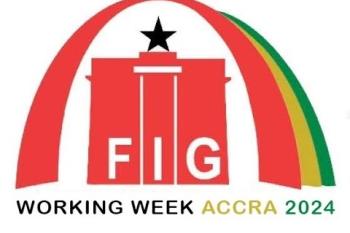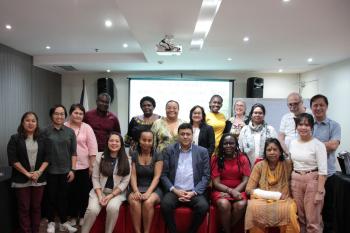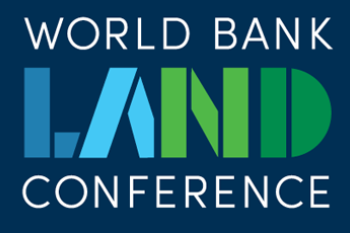Country learning exchange: Accelerating delivery of land and natural resources tenure security in Uganda, Laos and the Philippines
Rural poverty is strongly associated with weak access to land, either in the form of landlessness or because of insecure and contested land rights. Rural poverty also has a clear gender dimension, as women and girls are more likely to suffer the consequences of poverty. Global Land Tool Network (GLTN) is addressing these challenges through the ‘Secure Access to Land and Resources’ (SALaR) project that is being implemented in Laos, the Philippines and Uganda. The initiative seeks to improve land and natural resources tenure security for rural poor smallholder farmers, including women, youth and vulnerable groups. In the Philippines, the project is targeting 2,500 indigenous peoples’ farmer households in the province of Bukidnon, Northern Mindanao.
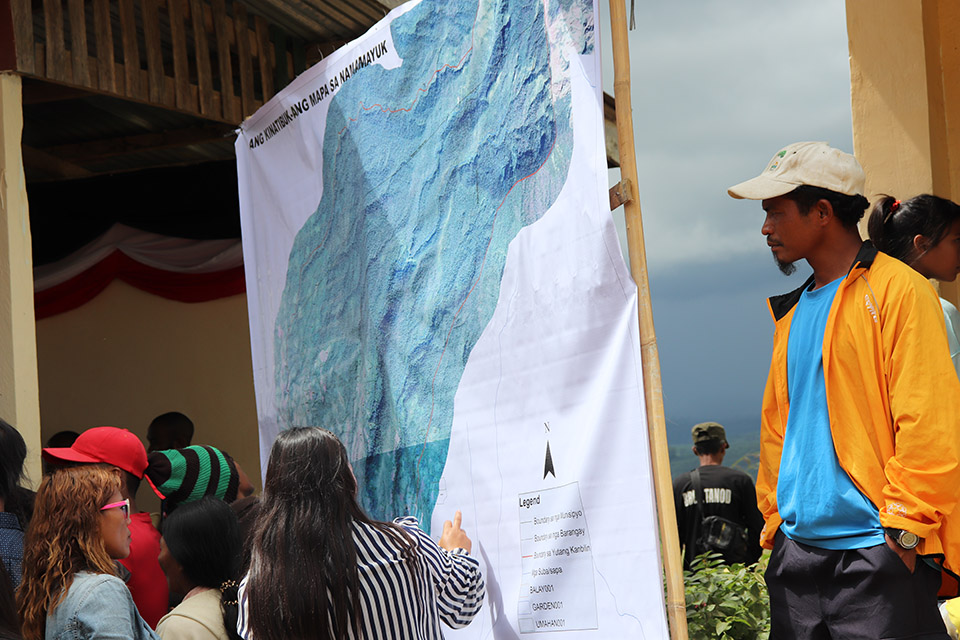 Community viewing the printed map for NAMAMAYUK generated from the data collected from the settlements
Community viewing the printed map for NAMAMAYUK generated from the data collected from the settlements
GLTN in collaboration with the project implementing partners in the three countries organised the first ever learning exchange in the Philippines 20-27 November 2019. Participation was drawn from all the implementing agencies, community members and leaders in the project sites, local government representatives from the Philippines and GLTN. Given that the project is at different stages of implementation in the three countries, the learning exchange provided a very good opportunity for the stakeholders to share experiences and lessons on the application and implementation of land tools, capacity development for the change agents and the engagement and building of partnerships. This project emphasizes capacity development as one outcome area that is critical for the sustainability of GLTN interventions as reflected in the GLTN Phase 3 Strategy and Programme. The exchange was structured to allow for discussions on country contexts as well as project-specific issues and this dialogue allowed stakeholders to get detailed responses to specific queries on project issues and challenges. There was also a field visit to the Technical Assistance Movement for People and Environment Inc. (TAMPEI), a GLTN implementing Partner and the technical support unit of the Homeless People's Federation Philippines Inc. (HPFPI) in the Philippines to learn more on urban interventions towards securing land rights. This visit helped the participants to appreciate that rural and urban areas and populations are increasingly interlinked, with interactions between different settlements along the rural-urban continuum shaping the livelihoods, food nutritional and security outcomes. Participants also visited project sites in the Northern Mindanao and interacted with partner indigenous cultural communities to share experiences from the project. Participants also witnessed the presentation of 23 Certificates of Customary Land Occupancy (CoCLO) to households of Nagkahiusang Manobong Manununod sa Yutang Kabilin (NAMAMAYUK Inc.), one of the Indigenous People’s Organization (IPO) where the project is being implemented in the municipality of Pangantucan, Province of Bukidnon, Mindanao. Of these, two were presented to women-led households, 18 were joint certificates presented to married couples and three were issued to youth. Present at the presentation ceremony were local government representatives from Barangay Nabaliwa and Barangay Bacusanon and 11 tribal leaders of the different tribes of the Manobo people within the IPO community. This project is also working in two other IPO: Portulin Talaandig Tribal Association (PTTA) and the Miarayon-Lapok-Lirongan-Tinaytayan Talaandig Tribal Association (MILALITTRA).
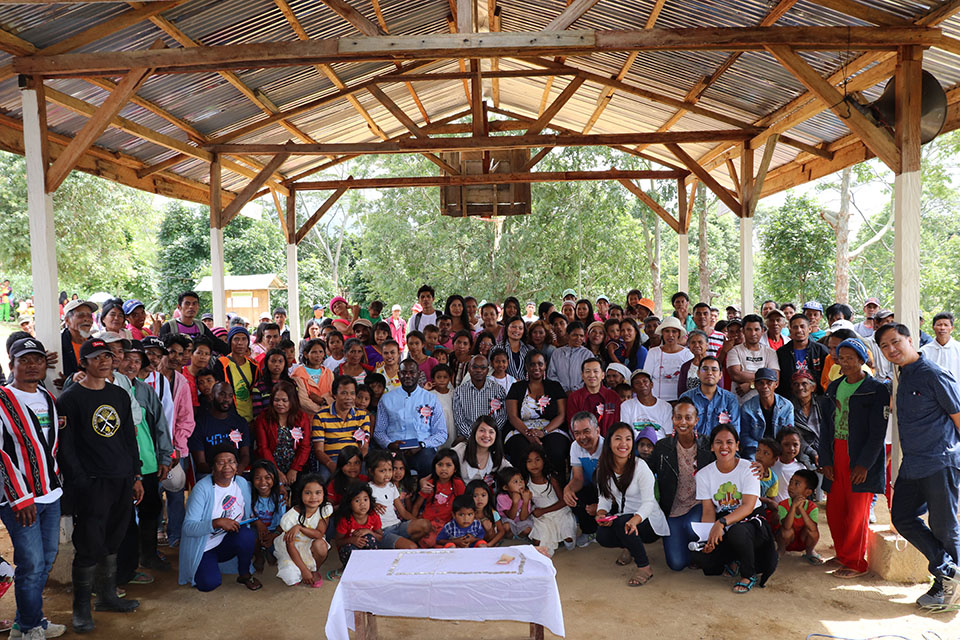 Learning exchange participants with the community members of NAMAMAYUK
Learning exchange participants with the community members of NAMAMAYUK
The tribal Chieftain Isabelo Tandihon thanked the partners for this project, noting its significance in securing the ancestral domain land from encroachment especially from large-scale investments companies. Chryi Nonay, a community enumerator for NAMAMAYUK said, “I feel very happy and proud to have participated in this project that will profit my community. I participated in data gathering, even the delineation too. If you were to call me again, I will do it without a second thought”. Majority of the enumerators are youth from the community who have gained or enhanced their skills in using the Global Positioning System (GPSs) gadgets and computers during data encoding. This project is funded by Federal Ministry of Economic Cooperation and Development of Germany (BMZ) and is being implemented by Asian NGO Coalition for Agrarian Reform and Rural Development (ANGOC), Xavier Science Foundation (XSF) in the Philippines; Village Focus International (VFI) from Laos; and, Makerere University School of Built Environment (MUK-SBE) and Uganda Community Based Association for Women and Children Welfare (UCOBAC) in Uganda.
